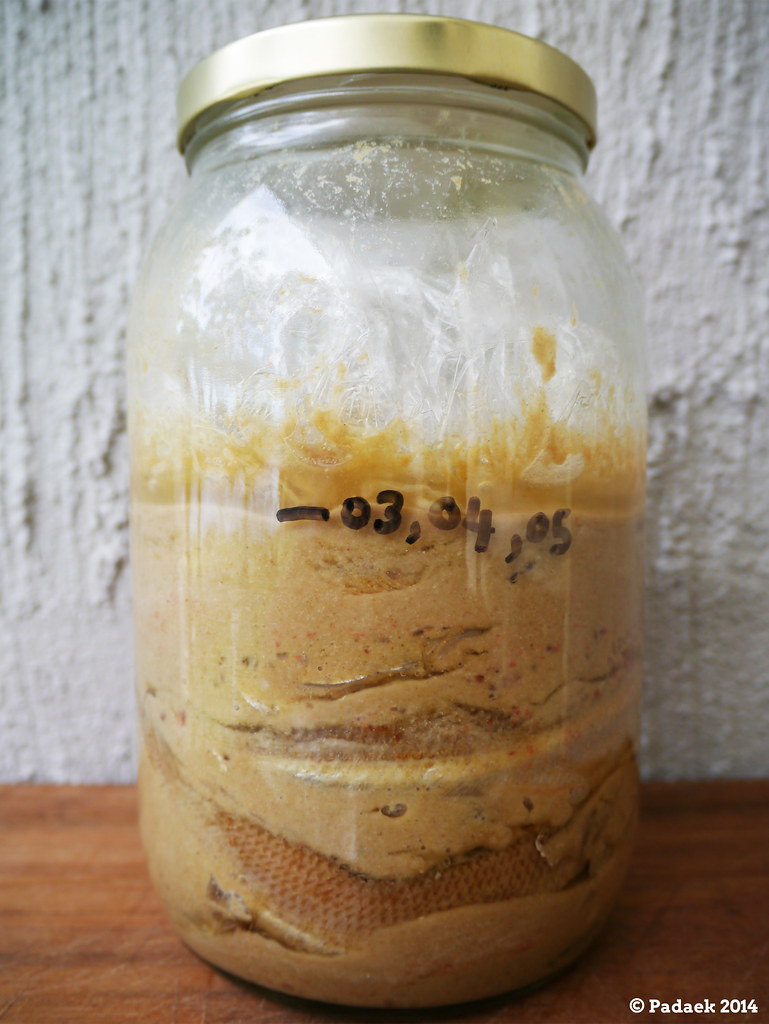
[dropcap]Yes[/dropcap], it’s hard to believe isn’t it, that we’re already in May? Far out, and the older we get, the faster time flies by. Believe you I young ones – spend your time wisely and productively, and spend more time with your folks and always be good to them, because time waits for no one and it can not be turned back, as alluring as [insert your favourite time machine here] 1may be. You’re probably just thinking I’m a batty old man, which is only partially true.
Anyhow – we’re gathered here today to witness another update of our much beloved padaek. To get straight to the point – it comes as no surprise that the padaek has remained virtually unchanged/stagnant since the last update (again). As a result, and as promised, this time round – I’ve decided to open up the jar to inspect it further and to remove the cling wrap and zip-lock bag/stone from inside the jar, and also give it a helping hand (with a pair of metal tongs).
I once mentioned that the colours and layers of the padaek reminded me of a sedimentary rock formation, and also of an ant farm. smile Today, after staring at the jar for a while, it occurred to me that the layers, shapes and colours of the padaek also look very similar to the pics I’ve seen of the atmosphere of Jupiter, although without as much chaos/turbulence/ferment happening.
Anyhow, I opened the lid today, and to my surprise, the smell/aroma of the padaek was very pleasant and sweet. There wasn’t an explosion of strong overpowering/unbearable smell erupting from the jar – instead, at closer inspection/sniff, I noticed the trademark “padaek” fish smell – similar to normal fish sauce, and not yet intense or pungent. My partner described the smell as being “yeasty”, similar to beer and bread. I liken it to a sweet smelling cheese.
If I may (without getting too carried away), it seems that I could almost smell the taste/flavour of the padaek – ie, slightly sharp/pronounced salty/umami/fishy smell. Overall, I was very happy with the state of the padaek and it’s aroma. Even though it’s only 4 months old, and has a long way to go before being ready for tasting/consumption, I think it’s right on track. Well done padaek!
I’ve been communicating with Natacha Du Pont De Bie 2 regarding a blog post that I’m writing about, and she mentioned the padaek’s slow fermentation, and asked if it was warm enough? I replied saying that it’s been kept in a room temp kitchen cupboard, and we’re in mid Autumn with the weather not being cold (although not hot either). Also, the padaek was made at the start of January (the middle of Summer), so it’s been exposed to some warmth over its 4 months (or as much warmth as I could provide it).
It still baffles me why the padaek stopped fermenting/reducing a couple of months ago. I’m not sure if the weather/temperature had something to do with it, or perhaps it’s because of the glass jar that its in, or perhaps it’s something else? Either way, after inspection today, the padaek looks well and hopefully, by pushing the fish down with the tongs – this will help kickstart it back into fermentation again.
It’s also interesting to point out – the fact that I could push the fish down quite easily with the tongs (and by a reasonable amount too), proves that the fish have been breaking down over the last 4 months, and the padaek has been progressing along, albeit slow, and even if it’s not obvious from outside the jar.
Let’s see what developments we have to report for next month. Thanks for following the process and have a happy week!
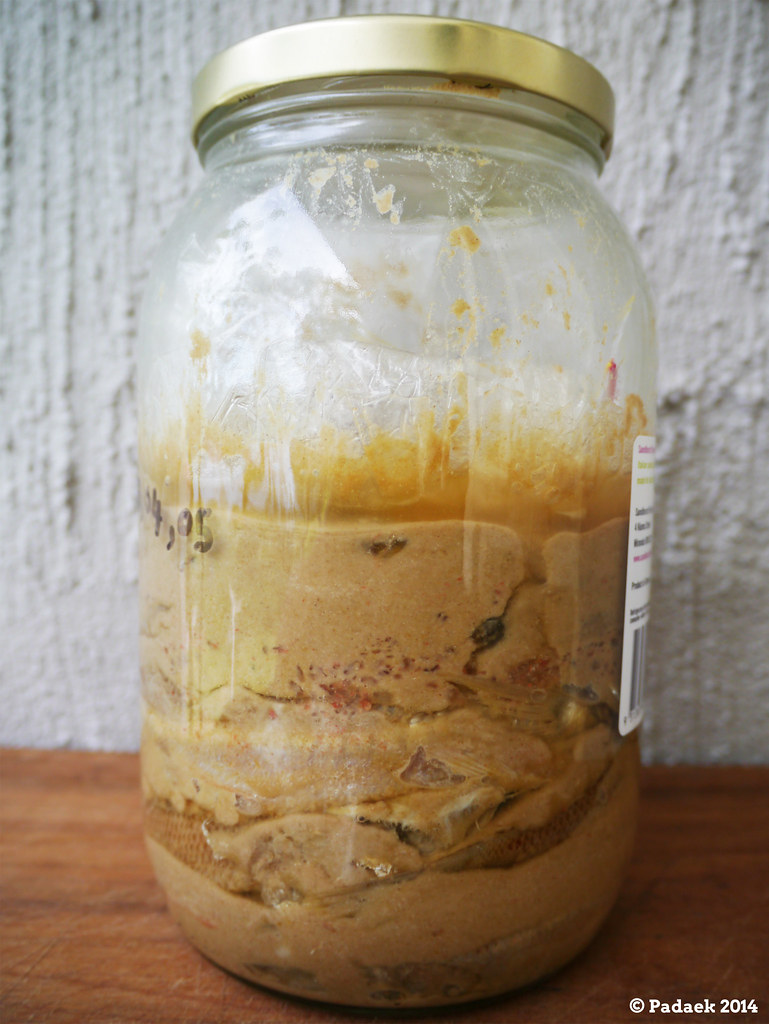
The more I observe the jar of padaek, the more I think it looks like the atmosphere of Jupiter (pic below). Can you see the resemblance?
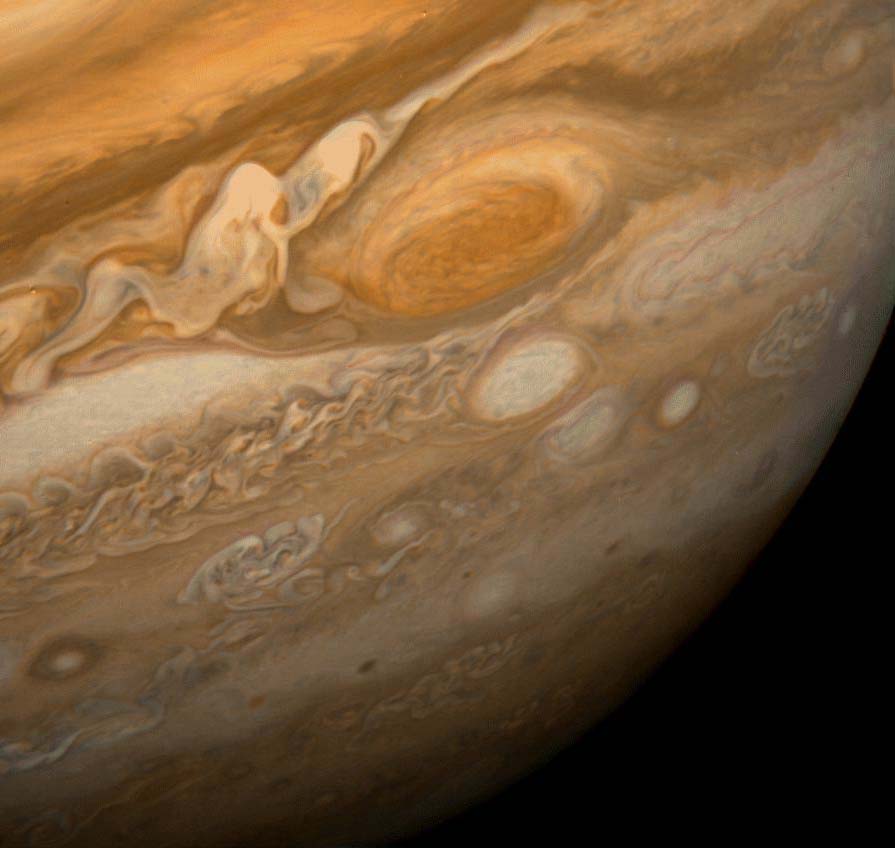
“This dramatic view of Jupiter’s Great Red Spot and its surroundings was obtained by Voyager 1 on February 25, 1979, when the spacecraft was 5.7 million miles (9.2 million kilometers) from Jupiter. Cloud details as small as 100 miles (160 kilometers) across can be seen here. The colorful, wavy cloud pattern to the left of the Red Spot is a region of extraordinarily complex and variable wave motion. To give a sense of Jupiter’s scale, the white oval storm directly below the Great Red Spot is approximately the same diameter as Earth.”
Image Source: Wikipedia, Author: NASA, Licensing: Public domain.
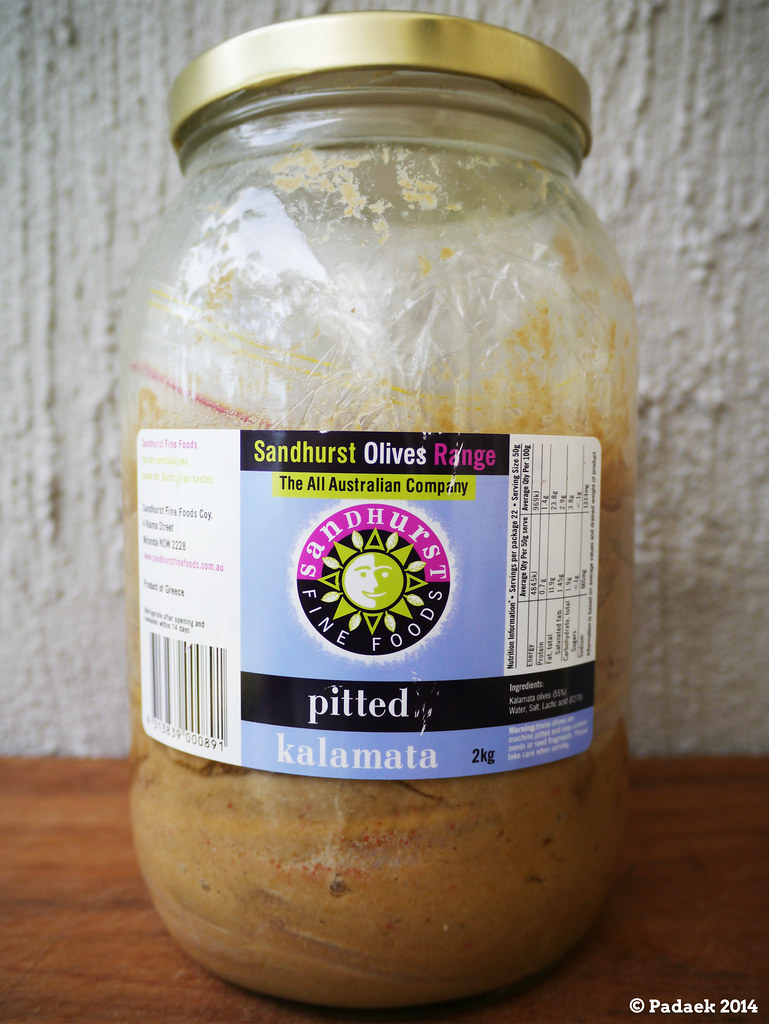
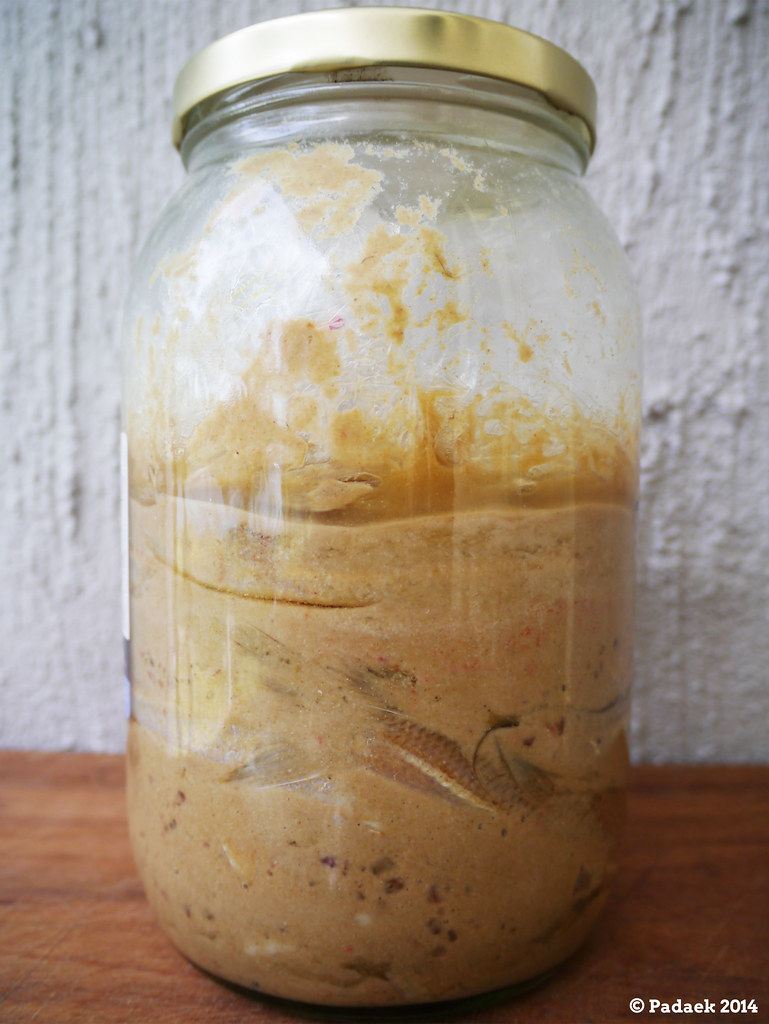
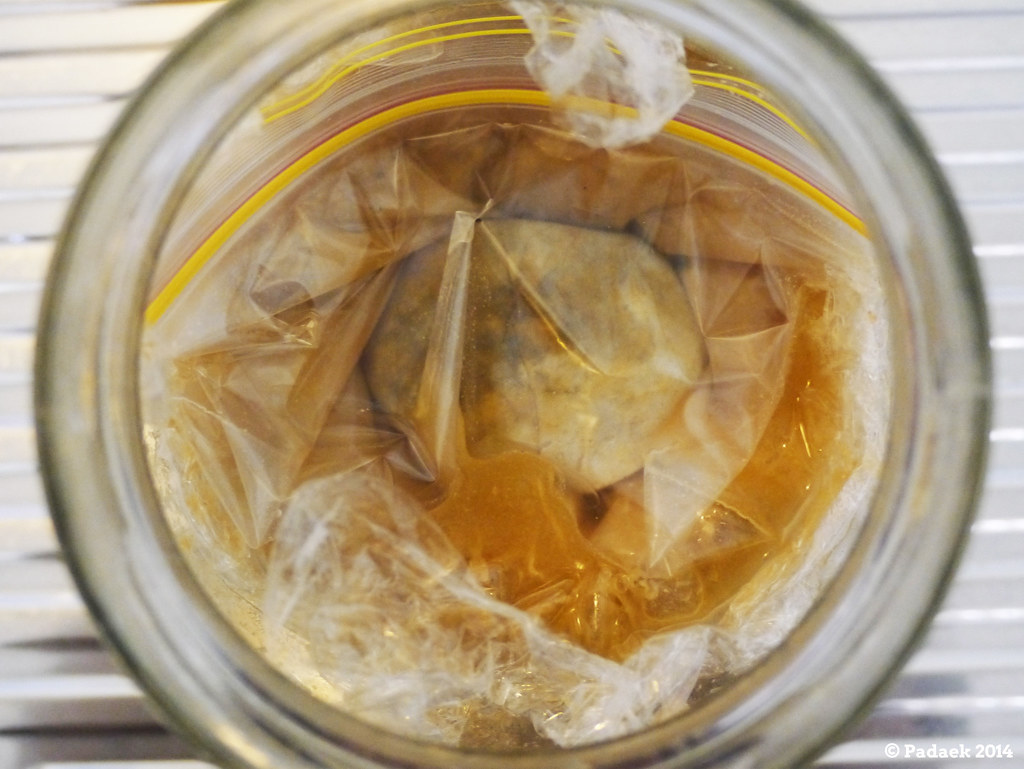
Tra-da! I finally opened the lid – after 4 months of sealed fermentation. The lid was tightly sealed and took me several goes and several positions to finally open it. When it did pop open, I was pleasantly surprised with the aroma/smell that was omitted from the padaek. I was expecting a strong/pungent smell, but to my surprise, the smell was quite sweet with a mild/subtle “padaek” smell. My partner described the smell as being similar to fermenting yeast. I agree and I also liken the smell to strong cheese with a subtle fishy note. It’s almost as if I can smell the salty and umami flavours from the rock salt and the fish, and the sweetness from the rice bran. Well, the padaek is only 4 months old, and still has a long way to go before it’s ready for use, by which time, its smell and flavour should be more intense and pungent. I removed the cling wrap, and the ziplock bag of stone with a pair of metal tongs, and then with the same tongs, I pushed the fish pieces down to the bottom of the jar, hoping that this will assist the padaek in its fermentation. Nothing like a pair of helping hands when needed, huh? I then tightly resealed the lid, took a few more snaps and replaced the jar back in the kitchen cupboard.
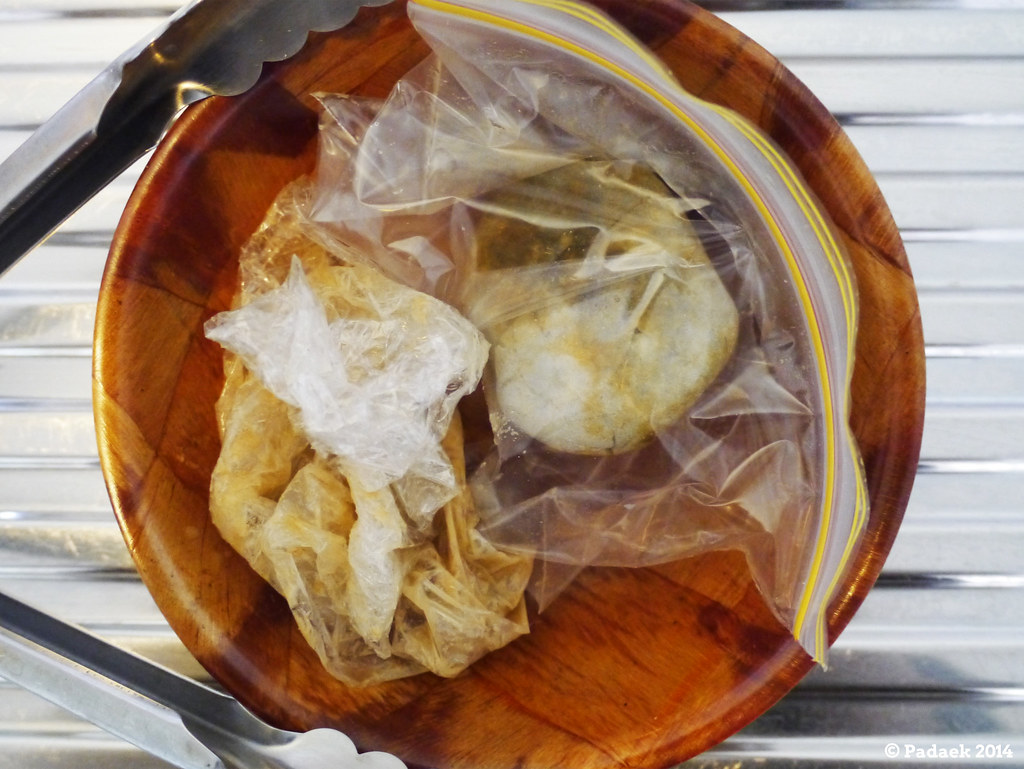
Update: I had left the above bowl of cling wrap, zip-lock bag & stone and tongs on the kitchen bench, and by night time (over 6 hours later), when I walked passed the bowl, I noticed I could easily smell the lingering and quite potent padaek smell from the bowl. I lifted the tongs up for closer examination, and noticed that the padaek liquid/particles had dried and omitted an intense yet sweet and delicate smell (something like “doughy/yeasty fish sauce”). It appears that when the padaek is exposed to air/dried, its smell becomes more intense/concentrated. I was quite proud of this familiar padaek smell/aroma, and strangely enough, my mind quickly thought of homemade tum mark hoong! Yeeha!
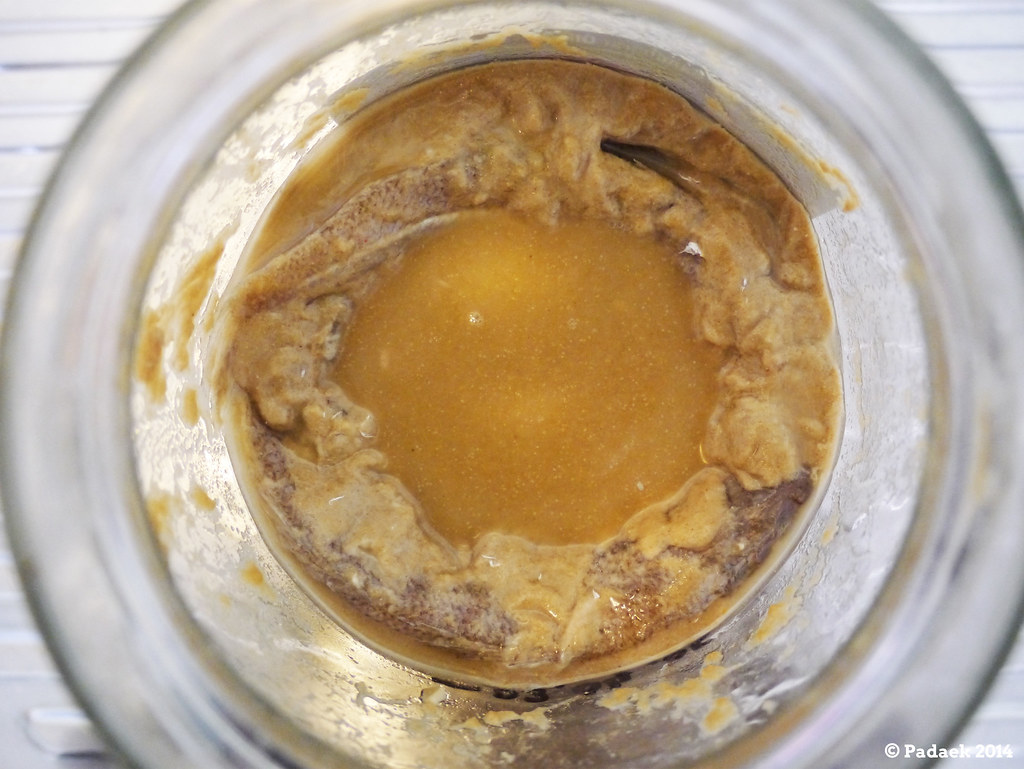
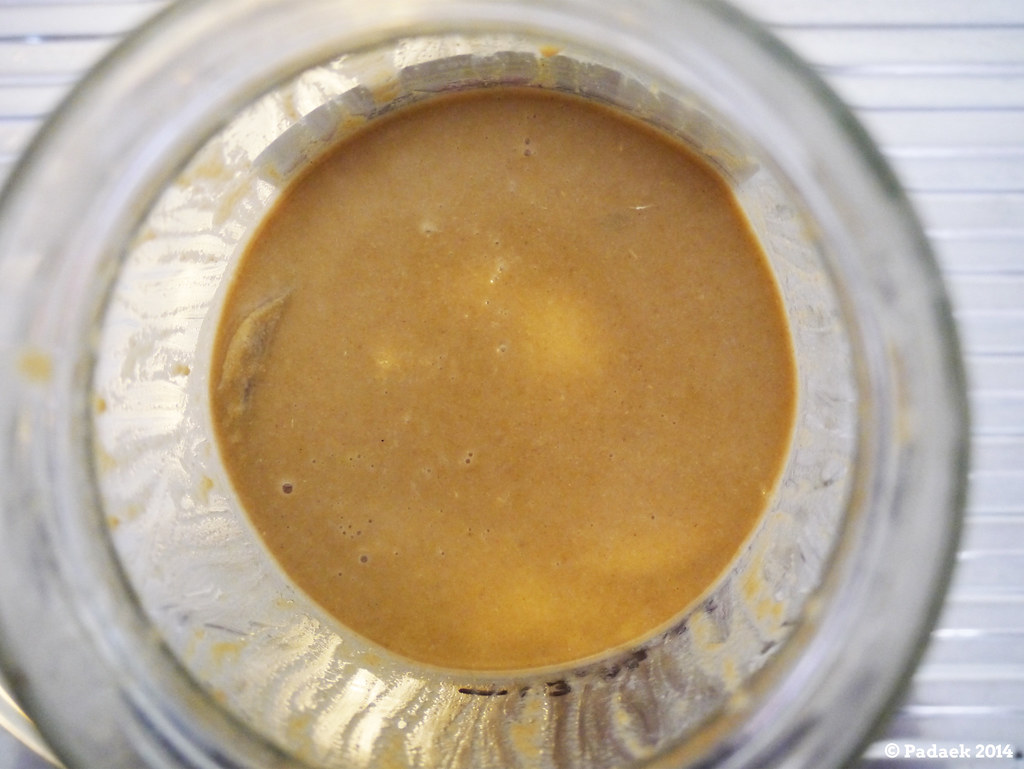
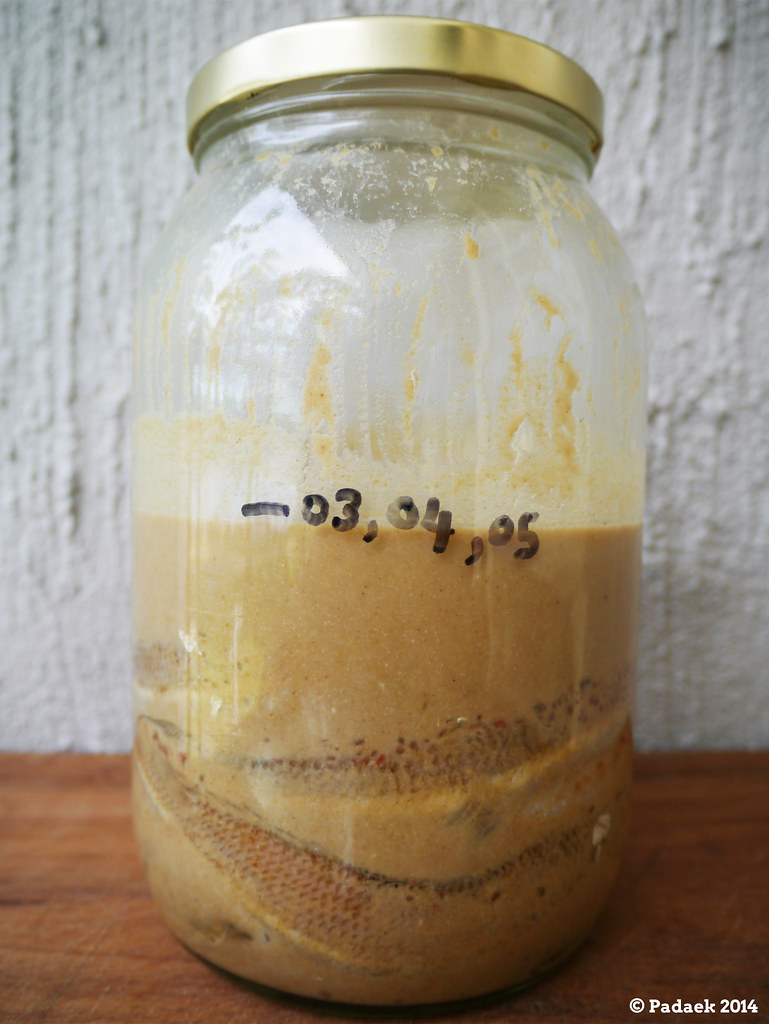
And here’s a side view of the padaek after the cling wrap, zip-lock bag & stone have been removed. As you can see, I’ve scraped the inside of the jar down to make it look neater, and the top/liquid part of the padaek is a little murky/thick atm because it was disturbed when I pushed the fish down with the tongs. Hopefully, by the next update, the particles should settle down and this liquid part should be clearer.
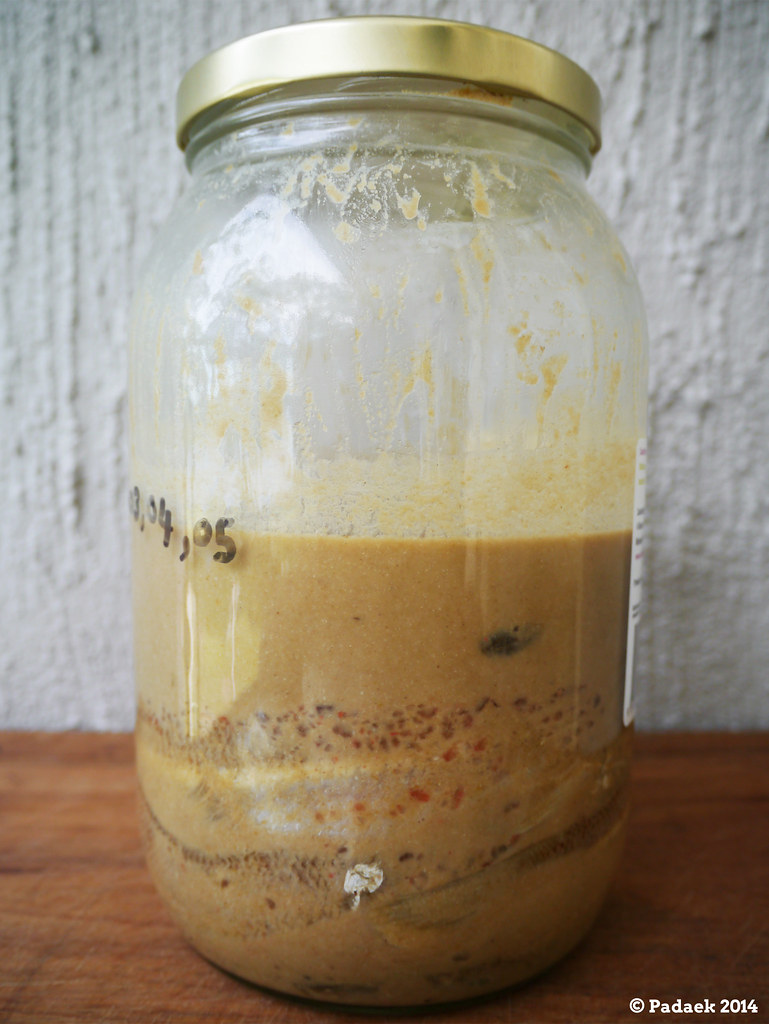
Notice the white spot at the base of the jar? How peculiar – I think it’s a piece of a fish’s stomach membrane/lining or something. The amber/orange spots/particles above it are the Himalayan pink rock salts, and I think the black spot at the top right is a part of a fish’s head.
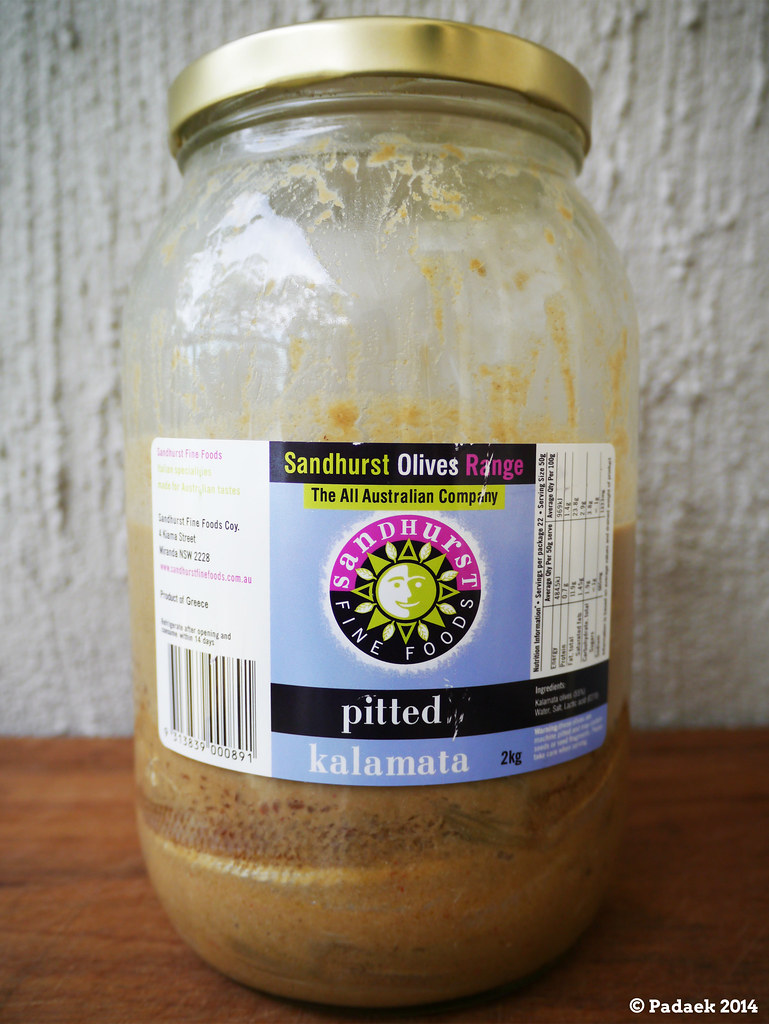
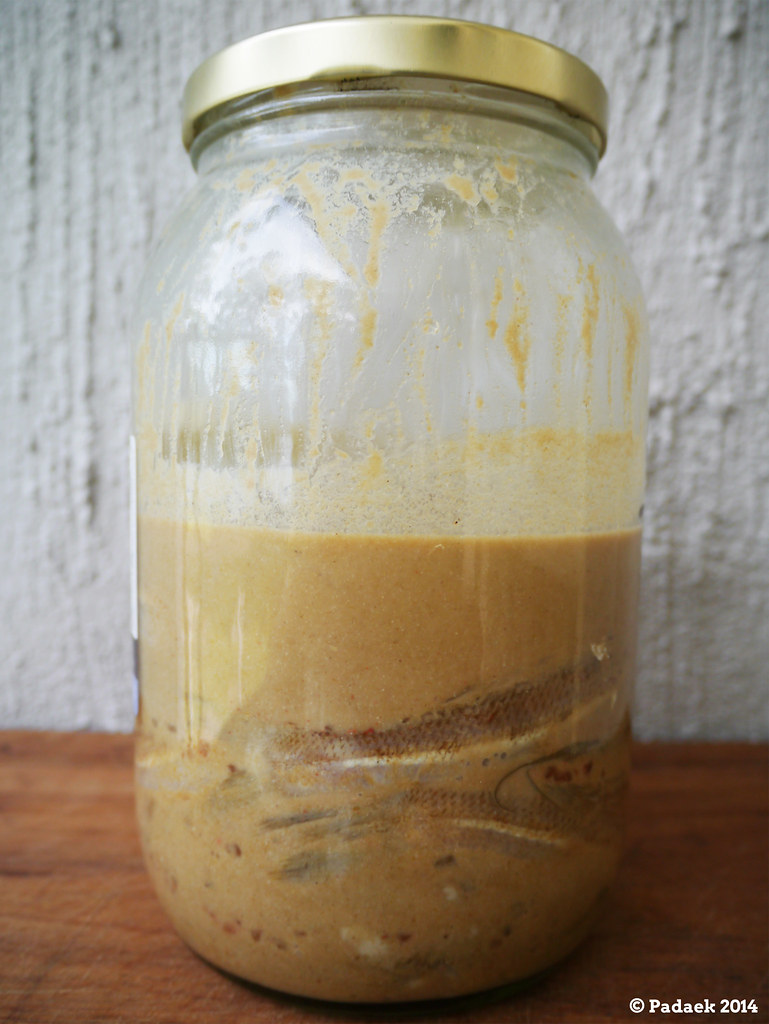
Notes:
Thank you for this fascinating journey from fish to padaek. I am glad you opened the jar and removed the plastic and stirred things up a little. I have been thinking that the traditional set-up for making padaek would once have been clay or ceramic jars, prior to glass being widely available, and that if that is correct, then there would have been some measure of air reaching the fermenting contents, even if there were a clay or ceramic lid. Like pickles in ceramic crocks here in the USA; these were covered but not airtight. Now I must wait for the next month to pass and see what this new chapter brings. So glad to be able to tag along on this journey.
Thank you Nancie! :D I think you might be correct about the traditional use of clay/ceramics jar for making padaek. I’ve actually been advised by Food From Northern Laos (http://www.foodfromnorthernlaos.com/2010/08/04/fermented-fish-sauce/) to transfer the padaek content into a smaller dark-sided crockery jar. However, at the time, I was worried about disturbing and contaminating the padaek and so just left it as it is. I wonder if there are negative effects from the air reaching the padaek in the crockery jar? Thanks Nancie! :)
And the comparison to the atmosphere of Jupiter? Brilliant, hilarious, and 100% right IMO.
Thank you. Glad you like it. :D
I love this new look!!
Thanks very much Thang! :D
Wow the patterns in that are mesmerising!
Thanks Helen! I know – it’s quite an obscure thing – I love it. It’s fascinating to see how it evolves. :)
This has been really fascinating. So glad you opened the jar this time to let us have a look inside!
Thanks Sara! Yes, I’m glad I finally opened the jar too to see what was going on and help the padaek in its fermentation process – at least that’s what I thought I did. Hopefully, everything will be just fine. Thinking about making another round of padaek but with a different method/recipe. Please stay tuned for updates. Best wishes! :D
Thanks for the update.
I also equate the fermentation smell to sweet bakery/brewery smells as well.
Hi Conie la Cream! Thanks very much for your visit and comment. Very true – the smell is reminiscent of a doughy/yeasty sweet smell from a bakery/brewery! :D Have you made some padaek recently also? If so, would love to hear more of its progress. Have a great day!